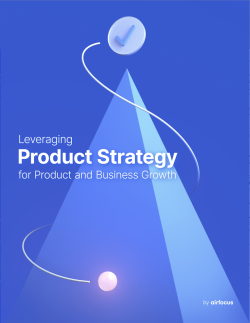Enterprise Product
What is an enterprise product
Enterprise product definition
An enterprise product (also known as an “Enterprise Software Product”) is any product or software whose management involves multiple stakeholders.
This generally includes internal sales, pre-sales, customer success, customer support, and marketing teams, as well as stakeholders. These key team members are required to be kept up-to-date on the product’s release cycle, associated roadmaps, and marketing success.
Enterprise products are driven by product managers, who align the multiple team members’ goals and product recommendations to form one cohesive product for the market.
These PMs rely less on marketing than traditional consumer products because the bulk of resources has instead been dedicated to market analysis and product development. As a result, enterprise products are hyper-targeted to both end users’ pain points and key stakeholders’ (the gatekeepers) goals.
Enterprise products vs consumer products: what’s the difference?
The difference between enterprise products and consumer products boils down to one significant factor: who the product is being developed for.
Consumer products are products that are purchased by buyers for personal use — whether it be individuals, groups, or households. Products for personal use are bought by consumers and, as such, it’s a consumer who’s kept in mind when the product is being developed and marketed.
Who will be buying this product?
What problems will they be using it to solve?
What demographic is our target audience?
Consumer products will work to answer these questions and will be developed to fix a specific end user problem. The four main types of consumer products are convenience products, shopping products, specialty products, and unsought products.
Enterprise products, on the other hand, are formulated with entire organizations in mind, instead of individuals. Commonly, these products seek to fill a hole in the market or create a product to rival a competitor’s pre-existing one.
It can be a very complex process to develop an enterprise product. You need to unpick and understand myriad stakeholder needs and get user feedback and input from a broad range of people.
What is it like to be an Enterprise Product Manager?
Being an Enterprise Product Manager is a multifaceted role that orbits around handling the product feature requests of both internal and external stakeholders.
The specific day-to-day activities of an Enterprise Product Manager include working to understand customer needs, manage stakeholder needs, and strategize overarching product decisions.
On any given day, an Enterprise Product Manager might be:
Conducting in-person interviews with both prospective buyers and key stakeholders
Observing usage of the product to see what improvements could be made
Facilitating information between customer-facing teams
Implementing relevant stakeholder feedback during the product development process
Enterprise Product Manager can be stressful at times. There are a lot of plates to spin! A talented product manager can be the determining factor between an enterprise product being a success… or a failure.
Challenges enterprise product managers face
Enterprise Product Managers face a variety of challenges due to the sheer number of people involved in the product development and rollout processes.
Other common hurdles for Enterprise Product Managers to overcome are:
Having to determine which stakeholder product suggestions are viable and which are not (without damaging the stakeholder relationships!)
Managing user expectations (especially when they want the product to be production-ready at the earlier stages of the development or testing processes)
And aligning internal stakeholder goals in a way that still creates a marketable product.
Despite its many challenges, however, being an Enterprise Product Manager is considered a solid foundation for good company culture. When employees and stakeholders feel involved in the company’s strategic direction, general happiness and productivity in the workplace are set to rise.
That high level of involvement is what the enterprise product methodology fosters.
As an Enterprise Product Manager, one contributes heavily to their team, is cross-functional in their role, and provides significant support to all of their peers. They act as the proverbial grease that keeps the company’s wheels running smoothly.
General FAQ

Glossary categories
Create effective product strategy

Experience the new way of doing product management








